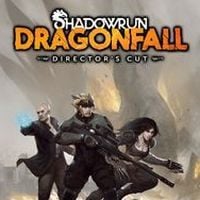Nothing ever happens. Cyberpunk 2077 lore and story critique
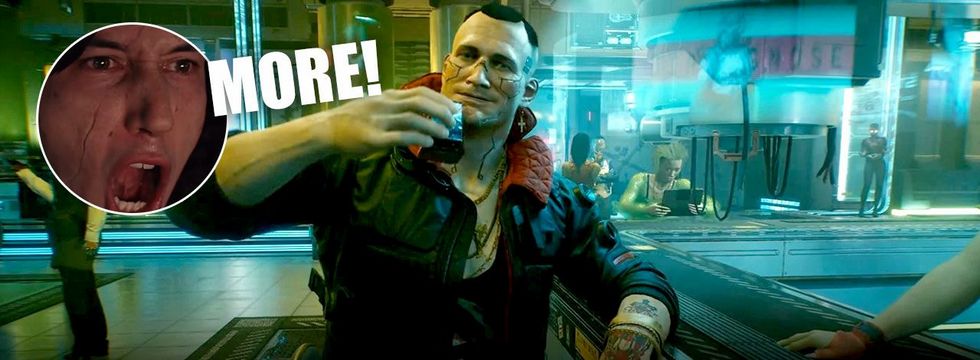
Nothing ever happens
The fact that the rather niche, strikingly over-the-top feel of Cyberpunk 2020 had to be toned down a bit for the purposes of a mainstream video game, I can understand. I don't approve of it, but I understand it. What I can't get my head around, though, is that cyberpunk themes, whenever they’re touched upon, are mostly done using completely exploited clichés. Indeed, if one has read the Neuromancer or seen Ghost in the Shell (let alone been familiar with Pondsmith's original table-top system), they will basically find nothing fresh in this game.
Of course, I don't mean stylistic inspirations. Cyberpunk 2020 was essentially an RPG adaptation of Gibson's prose, so it's hard to expect the world depicted in either of the works to be something completely new. And then, you no doubt expect some clichés from a genre that's so fleshed out. What we didn't need, however, were tropes and motives copied almost 1:1.
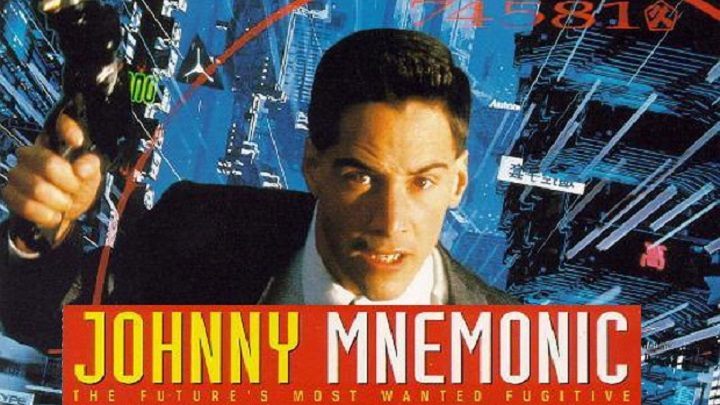
In Neuromancer, we are dealing with a semi-divine entity pulling the strings from a digital hiding place, seeking to unite with another AI to ascend to a higher level of intelligence. The situation is disturbingly reminiscent of Alt devouring the rest of the inhabitants of the net behind the Blackwall in order to expand her code and gain even more power.
It gets even more interesting when you consider Ghost in the Shell. The plot of the 1995 anime revolves around a cyborgized police officer, Motoko Kusanagi, and her pursuit of a mind-altering criminal known as the Puppet Master. The antagonist turns out to be an artificial intelligence that makes the main character an offer she can't refuse. The digital entity wants to obtain a body, and therefore proposes to the police officer that she merge her mind with the AI. The situation is very similar to the story of Johnny Silverhand. Yes, his consciousness was meant to literally replace the contents of V's head, not merge with it... But frankly, we're not so sure. Cyberpunk 2077 avoids considering the nature of human consciousness and never describes how the overwriting process itself would work.
THE SHIP OF THESEUS
When pondering over the identity of the person who would be created after Silverhand's self has overwritten V's mind, one cannot help but refer to the paradox of Theseus' ship. The problem is one of metaphysical identity, and asks the following question: If the crew would be replacing every single rotting plank of the ship during their voyage, ending up with every piece of the ship replaced, would they still be sailing the same ship?
A similar problem applies to humans: Our cells are incessantly being replaced by new ones; we get a new skin every four weeks, the old one peeled to dust; we get a new liver every couple of years... How different is this from Silverhand's engram overwriting another psyche? After all, we're dealing with the same situation – elements of a certain system being successively replaced by new ones. So yeah, would Theseus' ship be the same ship? In principle yes, but how different would it end up being? What new pieces of wood would be there?
Are any modifications introduced making it a different ship? Is a tuned Civic the same Civic as stock one? At what point would the ship cease to be the ship of Theseus and become the object of dreams of John the Silver-handed? And then: What ship would it be during the very process modification? One and the other? None of them?
The mentioned anime also tackles the problem much more boldly. At the point where Cyberpunk 2077 carefully backs off and serves up a generic epilogue after deciding what to do next with Johnny, Ghost in the Shell slams the pedal into the floor. Motoko not only connects with the Puppet Master, but enters philosophical discussions with her professional partner. The anime juxtaposes the attitude of attachment to one's identity with the desire to grow even at the cost of losing it. Cyberpunk 2077, on the other hand, rushes to the conclusion without pausing to consider the philosophical implications of the choices.
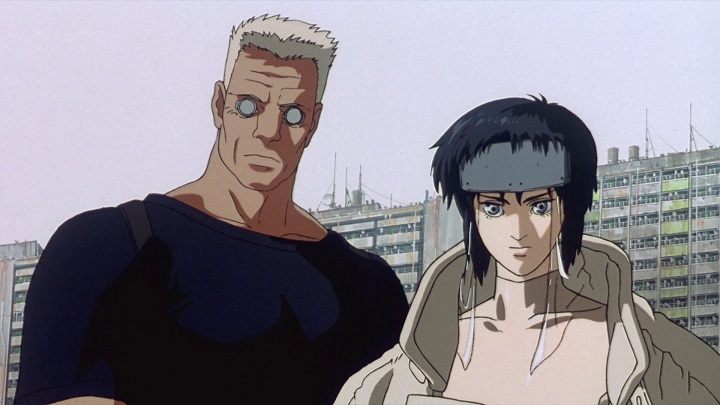
For both Gibson's novel and Oshii's anime, I am referring to works that are between 25 and 40 years old! So, in the context of the subject matter they deal with, they are almost antique works. There have been so many advances in artificial intelligence, brain research, and even the idea of transhumanism over the last quarter of century that I have a right to expect that even if the creators of a modern game use these tropes, they will transform them, taking into account the modern achievements of culture and science. That if they want to tell the same story that started it all, they should at least do it with 21st-century vocabulary. Unfortunately, I didn't see that in the storyline.
Someone might say I'm too picky. That it's different without knowing Gibson's books, that nobody talked about him in the 80s, and that my whole point is geriatric. Cyberpunk 2077 may be a cheeky take on stories from 30 years ago, but nobody remembers them today, so it's a bit of a reinvention, isn't it?
Well, not really. For one thing, I wasn't even born yet when Gibson wrote his opus magnum, so I'm proof that you don't have to be a retiree to be interested in these books. Second – these stories are still well alive. Contemporary literature continues to reference them, and in 2017, we even had a live-action film based on Ghost in the Shell.
And here, we arrive at Cyberpunk 2077's biggest misdeed. A novel written in 2005 by Richard Morgan. Ladies and gentlemen, I give you Awakened Furies. The plot is set in a cyberpunk world where human consciousness is uploaded onto a medium popularly known as modified carbon (yes, Awakened Furies is part of the same series that the Netflix' show Altered Carbon is based on). At the beginning of the book, one of the heroines is infected with an unspecified virus. In time, it turns out that it is the consciousness of, mind you, a terrorist who led a revolution against the ruling class years before. What's more, the rebel in question was author of lyrics, which could as well be attributed to Silverhand due to their specific, slightly pretentious style.
Awakened Furies tackles a theme that is twin to Cyberpunk 2077 – with very similar twists, a similar central problem, and the same conflict of a legendary terrorist from years ago. Did I say that this is the biggest misdeed of the game's screenwriters?
Well, I lied. The biggest crime is that, in terms of plot, they are very close to an indie game currently costing $14.99. The game Shadowrun: Dragonfall is an isometric cRPG telling the story of a group of shadowrunners (roughly the equivalent of cyberpunks) trying to solve the mystery of the death of a team member, whose brain was fried in mysterious circumstances during one of the operations. In the end, it turns out that the man responsible for the death was... well, a Soulkiller. Even a super-Soulkiller, because this one, unlike Arasaka's invention, didn't wait politely on the disk, but penetrated its part of the network, cleansing the brains and copying the minds of all who dared to venture into his domain. The AI appears to the player in form of a copied companion, of course, and speaks lines that are oddly reminiscent of what the digital Alt Cunningham said. And all this in a game released in 2014 that was probably developed on a quarter of the price of Keanu's dinner.
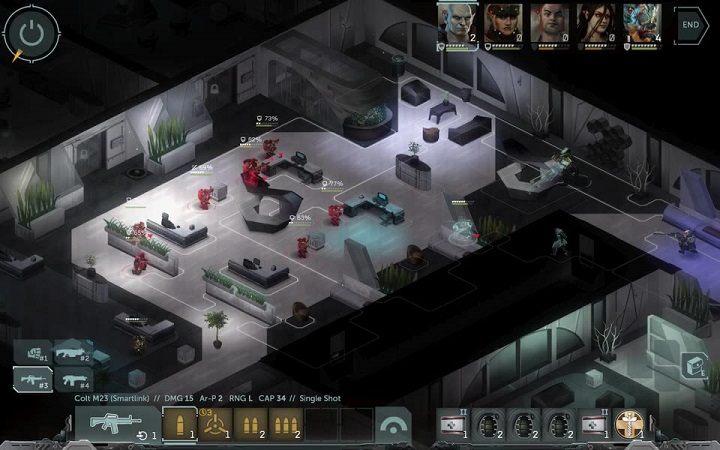
Shadowrun is a universe created in 1989 that combines cyberpunk and fantasy. Magic returned to the futuristic world of dark future in the year 2012. As a result of unexplained events, people began to transform into trolls, dwarves, and elves – it's mighty fun. In addition to the pre-existing professions of street samurai, hackers, and businessmen, magicians and shamans also appeared. Corporations, having gained access to secret knowledge, have become even more dangerous.
A troll with a shotgun fighting drug smugglers in exoskeletons? Count me in. A shaman summoning abominational monstrosities from the darkest corners of the netherworld to fight on his behalf with an APC carrying a chip containing important corporate data? Virtual reality haunted by ghosts? You name it, the game has it all.
It could have been better
Of course, I'm not accusing Cyberpunk 2077's scriptwriters of plagiarism or unprofessionalism. But definitely of being sloppy. It's normal for modern artists to borrow from others and be inspired by classics, but there's a fine line between being inspired and regurgitation. Likewise, I wouldn't hold it against CD Projekt Red that the cyberpunk atmosphere isn't quite what I'd hoped for, even though the game was admittedly overhyped and advertised as a faithful adaptation of the source material.
And maybe it's my fault for letting myself get caught in the hype again? Perhaps I should restrain unrealistic expectations and settle for something much more mundane than my dreams?
Once again, I've got to say: Not really. I don't think my expectations are the problem here. I'm almost sure that they were most appropriate, because I know that the writers employed by CD Projekt Red are top-notch. They delivered some really powerful stories in the entire The Witcher trilogy. I know they can do it, which is why I'm looking forward to the upcoming DLCs. I think it will be a great way to explore the niche areas of the universe, and definitely to make up for all the hardships we've had to endure since December 10, 2020. Expectations are definitely smaller in case of a DLC; the core mechanics are ready, there's a lot less things standing in the way of simply telling a great story. And there's plenty of power in this world to fuel more than one tour de force. I only hope CD Projekt Red will remember that with great power comes great responsibility.
ABOUT THE AUTHOR
I was among the most-hyped people before the release. From the moment I read the manual for Cyberpunk 2020, which was somewhere around 2000, a vision began to take shape in my mind. A vision of the perfect game that not only lives on in my memory, but has largely shaped my interests as a consumer and a creator. Perhaps that's why I rate Cyberpunk 2077 very low, while also having a lot of fun both with the production itself and writing about it, even if it's criticism.
